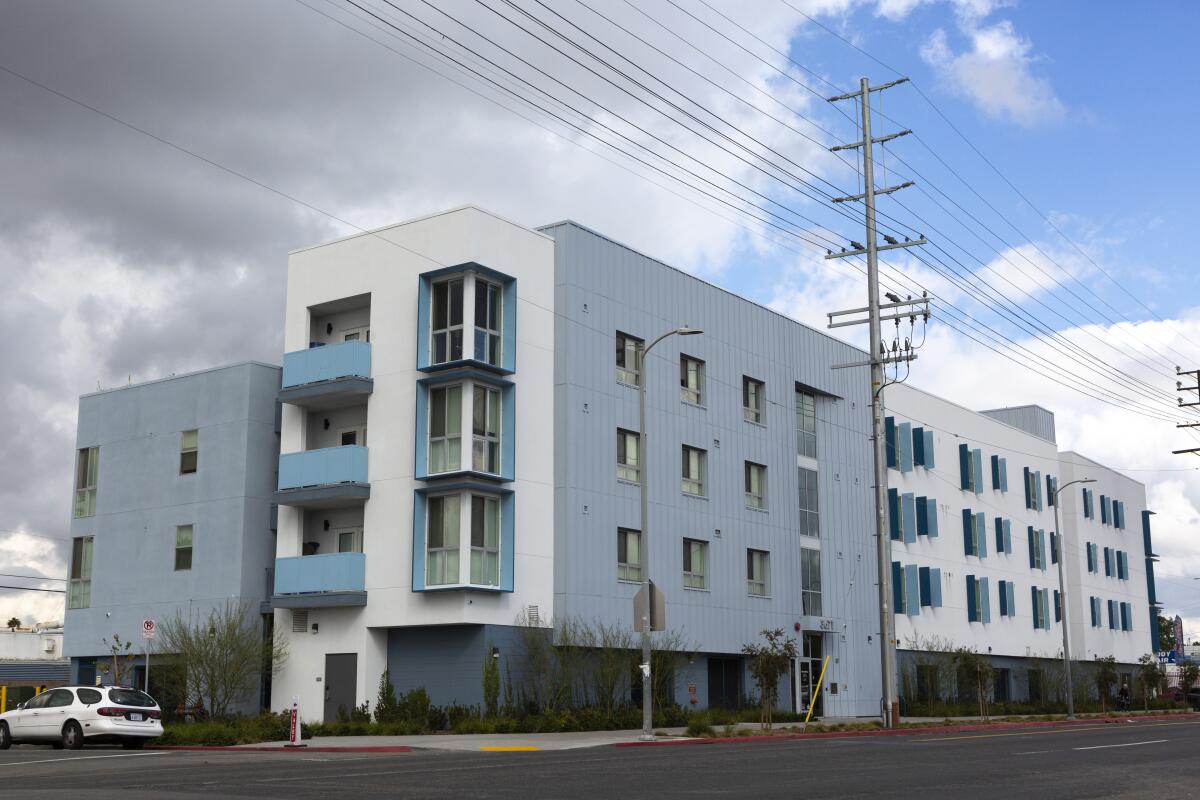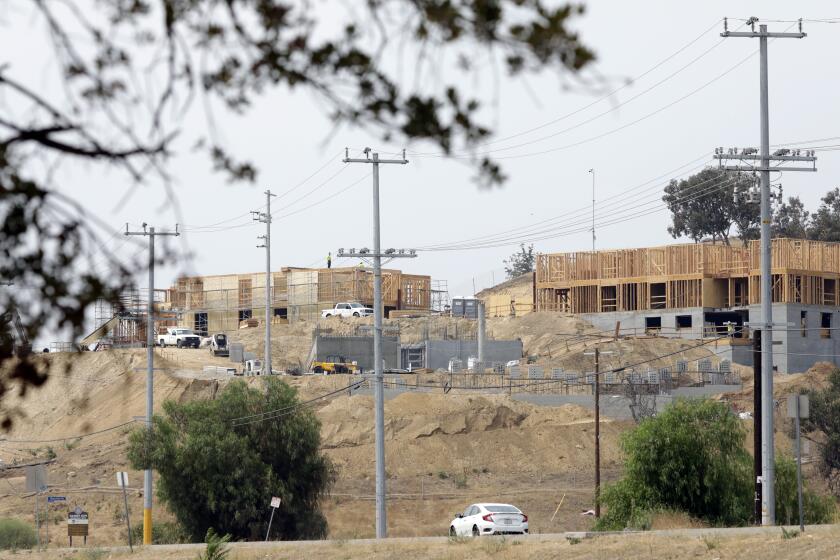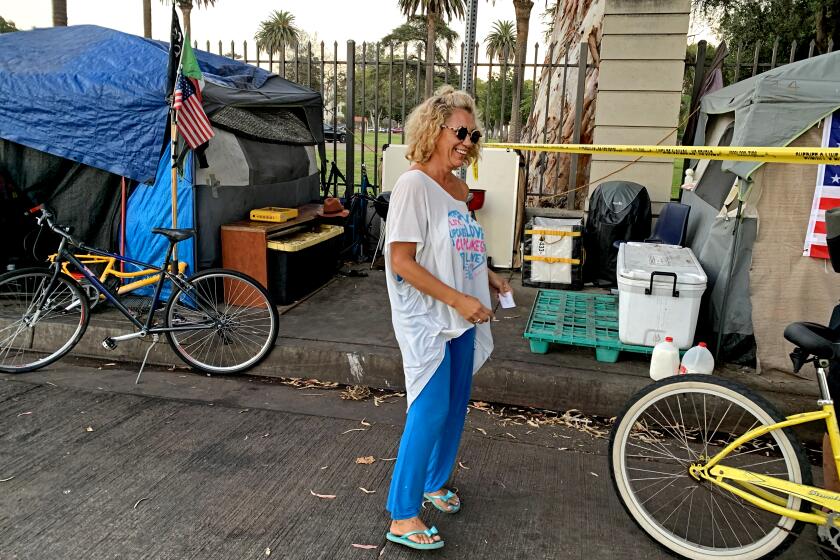Editorial: If state leaders want affordable housing, they have to stop bungling attempts to fund it

One of the biggest disappointments of last yearâs legislative session was the failure to pass Senate Bill 679, which would have created an independent agency to secure funding for desperately needed affordable housing across Los Angeles County.
The ambitious bill, written by Sen. Sydney Kamlager, a Democrat from Los Angeles, would have set up the Los Angeles County Affordable Housing Solutions Agency to build new housing, preserve existing affordable housing and offer renters services, such as emergency rental assistance and access to legal counsel to help resolve landlord-tenant disputes. The agency would have gotten its funding through voter-approved tax or bond measures. Additionally, the agency could have applied for grants from federal and state governments.
Yes, the Legislature did pass a package of bills designed to increase housing supply. They include the controversial Senate Bill 9, which allows up to four units of housing on a single-family lot, and Senate Bill 10, which makes it easier for cities to rezone any urban or transit-adjacent parcel of land for a building of up to 10 units. Gov. Gavin Newsom signed them all into law.
The Los Angeles Countyâs homelessness crisis needs a bigger-than-my-backyard approach. Senate Bill 679 is a first step.
But Senate Bill 679 was stalled. That was a loss for L.A. County, which needs hundreds of thousands of affordable homes to prevent even more people from becoming homeless.
The bill, after passing the Senate, was held in the Assembly, reportedly mired in a long-standing dispute between legislators and the powerful State Building and Construction Trades Council, which represents a variety of skilled laborers. The politically powerful union had opposed a number of bills in recent years to streamline housing approvals or loosen local zoning regulations unless the legislation required that at least a third of construction workers on the projects be graduates of apprenticeship programs that are generally union-run. Frustrated by these demands, Assembly Speaker Anthony Rendon (D-Lakewood) held up a number of housing bills, including SB 679, in an attempt to get the union to agree to something more acceptable to developers and legislators.
There was some talk of using a go-for-broke approach when the Legislature reconvened in January that could have rushed the bill through the Assembly, and with Newsomâs signature, SB 679 could have taken effect this month. That would have created the new agency and allowed advocates to begin collecting signatures to put a countywide tax on multimillion-dollar property sales on the 2022 ballot to fund the agency. But no one, including Kamlager, seems to be going for that option.
Itâs great to be able to house an entire homeless encampment. But it should be done for reasons of public access and safety, not to placate whichever neighborhood complains the loudest.
If SB 679 is approved later this year, the soonest a revenue-generating tax measure could get on the ballot would be 2024. The tax could raise more than half a billion dollars a year and help the agency build or preserve 100,000 affordable units over the next decade.
This bill is simply too important not to become law. The housing agency would provide a much-needed countywide vision for affordable housing, foster cooperation among the cities of the county, and, perhaps most important, secure the funding to ensure that the poorest residents have stable housing. Fewer than 10 of L.A. Countyâs 88 cities allocate local dollars to produce or preserve affordable housing. This agency could change all that.
Kamlager says that she has done everything she can within her power to resolve the dispute â she has met with stakeholders, considered amendments, âand even lit candles.â
At the moment, this bill remains stalled because the Assembly leadership and the trades council still have not reached an agreement on a labor standard, according to Erin Lehane, spokesperson for the council, who says union officials have offered various suggestions. As for the unionâs concerns, the workers building and installing plumbing in apartments for impoverished people should not make so little that they join their ranks. But state leaders cannot keep delaying transformational housing bills, such as SB 679, while various interest groups squabble. Ultimately, passing these bills is a unilateral decision by the Legislature. Rendon and other politicians should offer the union a fair compromise and move on this and other vital housing bills.
The lack of affordable housing is arguably the biggest crisis in the state of California, and nowhere is the issue more pressing than in Los Angeles County. Letting this bill die would be a travesty. Itâs time for state legislators to prove they not only understand that but are willing to do something bold to address it. That includes getting SB 679 passed and the Los Angeles County Affordable Housing Solutions Agency launched.
More to Read
A cure for the common opinion
Get thought-provoking perspectives with our weekly newsletter.
You may occasionally receive promotional content from the Los Angeles Times.












